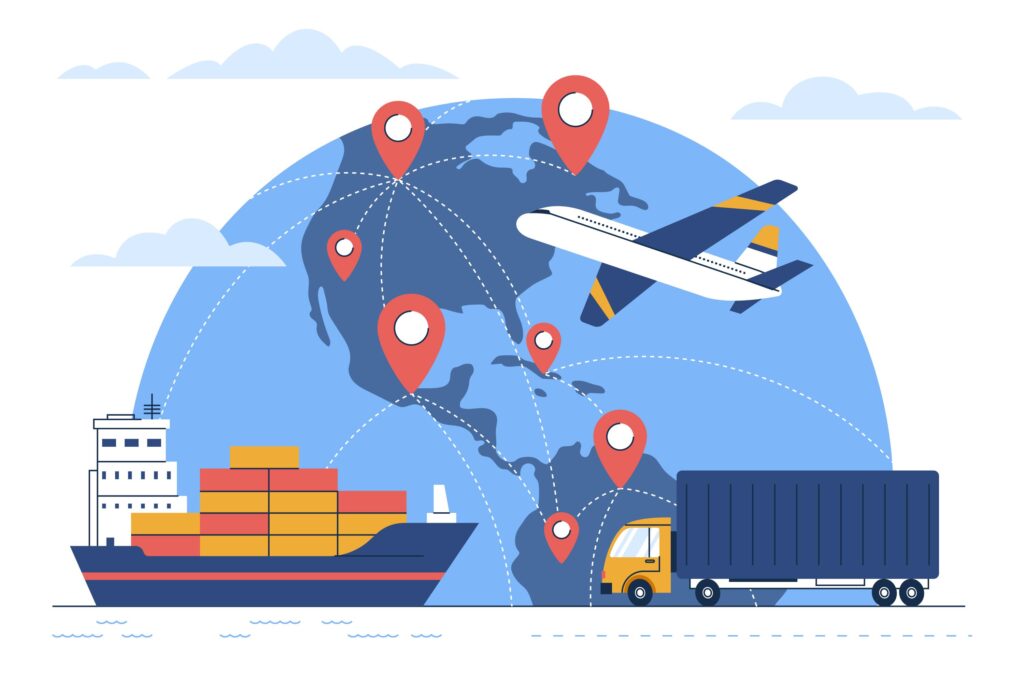
In a world where global trade and commerce are the heartbeat of economies, navigating the intricacies of international business can sometimes feel like threading a needle. It’s in this complex landscape that carnets quietly play their role, simplifying the way businesses move goods across borders. But what exactly is a carnet, and how can it benefit you or your business? Let’s delve into the world of carnets, shedding light on their types, applications, limitations, and more.
What is a Carnet?
At its core, a carnet is a handy document that facilitates the temporary importation of goods into foreign countries. Think of it as a passport for your merchandise, sans the visa stamps. Carnets come in various forms, each tailored to specific purposes, but they all share a common goal to streamline international trade.
Types of Carnets
ATA Carnet: The ATA (Admission Temporaire/Temporary Admission) carnet is your go-to choice for temporarily importing professional equipment, goods for trade fairs, exhibitions, and even commercial samples. This is a lifesaver for businesses looking to showcase their products or services on foreign soil without the hassles of customs duties and taxes.
TIR Carnet: The TIR (Transports Internationaux Routiers/International Road Transports) carnet is designed for the smooth transit of goods by road through multiple countries. It simplifies customs procedures and ensures that your cargo reaches its destination efficiently, even when crossing several borders.
EC/CPD Carnet: These specialized carnets are used for the temporary importation of goods into the European Union and are particularly helpful for companies participating in trade shows, exhibitions, or other business-related activities within the EU.
What Do Carnets Allow You to Do?
Carnets are your golden ticket to hassle-free temporary importation. When you possess a valid carnet, you can:
Avoid Paying Customs Duties and Taxes: One of the most significant advantages of a carnet is that it exempts you from paying customs duties and taxes when importing goods temporarily. This translates to significant cost savings for businesses.
Simplify Customs Procedures: Carnets streamline customs procedures, saving you time and reducing bureaucratic red tape. It’s like having an express lane at the border.
Enhance International Business Opportunities: Carnets open doors for businesses to explore international markets without the fear of excessive costs or complicated paperwork. This encourages economic growth and fosters global trade relationships.
What Merchandise is Covered by Carnets?
Carnets are versatile tools that cover a wide range of merchandise, including:
Professional Equipment: Whether you’re a photographer with high-end cameras or a musician with delicate instruments, carnets allow you to temporarily import your professional equipment without a hitch.
Exhibition Goods: Businesses participating in trade fairs or exhibitions can transport their display materials, samples, and promotional items using carnets.
Commercial Samples: If you’re in the business of showcasing your products to potential international clients, carnets let you temporarily import your samples without incurring customs duties.
What Merchandise is NOT Covered by Carnets?
While carnets are incredibly helpful, they do have limitations. They generally do not cover:
Goods for Sale: Carnets are not meant for importing goods that will be sold in the foreign market. If your intention is to sell products abroad, you’ll typically need to adhere to the customs rules and regulations of the respective country.
Consumables: Items like food, beverages, and fuel are usually not eligible for carnet use.
What Countries Accept/Use Carnets?
Carnets are widely accepted and used in numerous countries across the globe, making them an invaluable tool for international business travelers. The ATA carnet, in particular, is recognized by over 80 countries and territories, including major trading partners like the United States, the European Union member states, China, and Japan.
However, it’s essential to verify the specific requirements and regulations of the country you intend to visit, as acceptance can vary.
How Long is a Carnet Valid for?
Carnets are not timeless travel companions for your merchandise. They have a finite validity period, typically ranging from six months to one year, depending on the type of carnet and the issuing organization. After this period, you’ll need to return the carnet, along with any unused pages, to the issuing authority.
Can a Carnet be Extended?
In most cases, carnets cannot be extended. Once the validity period expires, you’ll need to apply for a new carnet if you still require temporary importation of goods. It’s crucial to plan your international business activities carefully to align with the carnet’s validity period and avoid any disruptions to your operations.
In conclusion, carnets are invaluable tools that facilitate temporary importation of goods, making international trade more accessible and cost-effective. They come in various forms, each tailored to specific needs, and allow businesses to navigate customs procedures with ease. While carnets cover a wide range of merchandise, it’s essential to understand their limitations and verify their acceptance in the countries you plan to visit. By harnessing the power of carnets, businesses can unlock new global opportunities and expand their horizons beyond borders.
